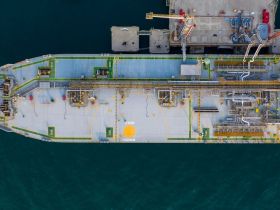Brent/Dubai EFS hits 16-month high as Libyan force majeure declared
London (Quantum Commodity Intelligence) – The Brent/Dubai EFS reached a 16-month high in Asian trading hours Tuesday, as the force majeure declared at the Libyan port of Hariga saw the North Sea Brent benchmark pull ahead of the key Middle East reference price.
Quantum assessed the June EFP, or exchange of futures for swaps, at $3.39/b at close of business in Singapore, which is the highest level since November 2019. The EFS gained $0.34/b on the day, as Brent futures rallied strongly on the news from Libya.
Brent futures for June crude reached a high of $68.08/b Tuesday, over $1/b up on the day, before being pulled back by concerns over the rising number of coronavirus cases, particularly in Asia. At 1440 in London (1340 GMT) Brent was trading at $67.42/b, versus Monday's settle of $67.05/b.
The Brent/Dubai, or EFS, measures the spread between Brent futures against the corresponding Dubai swap. But because of the Middle East/Asian trading cycle there is two months of market structure between June futures and the Dubai swap. So while June Brent futures reflects the June-loading crude, the June Dubai swap reflects Middle East crude loading in August.
Quantum assessed June cash Brent (BFOE) at $68.01/b on Tuesday vs cash June cash Dubai at $65.60, lifting the cash Brent/Dubai spread to two-month high of $2.31/b.
EFS role in the market
The EFS is used as measure of light sweet crude against medium sour, for calculating West/East values and for long-haul arbitrage opportunities. A wider spread typically makes Middle East crude and other grades pricing against Dubai (or Dubai/Oman) more attractive to Asian refiners, while crude from the North Sea or West Africa becomes more expensive.
The force majeure in Libya potentially removes 180,000 b/d of crude from the market and has more impact on Brent compared to Dubai, given Libyan barrels typically supply Europe and are closer in quality to the North Sea.
Brent had already been pulling ahead of Dubai in recent weeks amid firmer sentiment in oil markets, although the Middle East faces uncertainty with Iranian exports potentially creeping higher. However, Brent also faces short-term uncertainties with traders reporting more West African and US crude being offered into Europe – in part due to these grades now being more expensive for Asian buyers.
Asia-Pacific grades that price against Dated Brent, such as those from Malaysia, Indonesia, Vietnam and Australia also become more expensive when the there is a wide Brent/Dubai spread, although lower differentials typically compensate.
